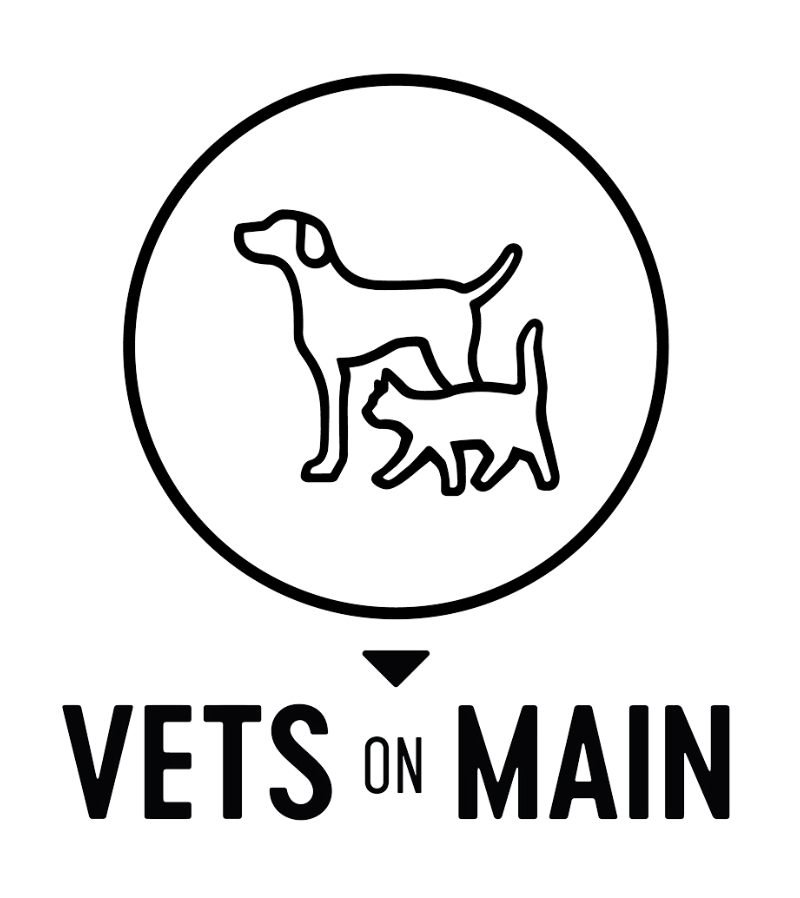
Puppy Guidelines for New Pet Owners
Congratulations on your new puppy! Raising a puppy is a rewarding experience, and it’s important to ensure that you provide the best care from the start. This document covers key aspects of puppy husbandry, including vaccinations, training, nutrition, and more. Our goal, like yours, is to help your puppy grow into a healthy and well-adjusted member of your family.
Guidelines

1. Vaccinations
Vaccines are essential for protecting your puppy against serious and potentially fatal diseases. The recommended vaccination schedule for puppies is as follows:
Core Vaccines:
- DAPP – Distemper, Adenovirus (Hepatitis), Parvovirus, Parainfluenza
- This combination vaccine covers a variety of severe illnesses that can affect puppies, especially parvovirus. For this reason it is important that all puppies receive this from as early as 7-8 weeks of age.
- These vaccines are given at 8, 12 and 16 weeks of age and then re-vaccinated at the one year mark. Afterwards, it is readministered every third year.
- Leptospirosis
- This can be found in the urine of wildlife (such as skunks or raccoons) and can rest on whatever it touches (soil, leaves, etc.). It can be killed by sunlight which is why we tend to see higher risk in the Fall and Spring times.
- This requires a booster in 4 weeks, then becomes an annual vaccine.
- Rabies
- This is a fatal virus that can be transmitted by bites from an affected animal. This is a legal requirement in most regions of Canada, and important for travel abroad.
- The first vaccine lasts for one year, then, if vaccinated before it expires, is re-administered every 3 years afterwards.
Lifestyle Vaccines (depending on risk factors):
- Bordetella (Kennel Cough)
- This can help reduce the duration and severity of Kennel Cough, which covers several different upper respiratory illnesses. The cough in this case can be caused by a virus, bacteria, or can be allergic in nature. This vaccine helps protect against the bacterial form.
- Recommended if you are socializing your puppy with other dogs, frequenting areas where other dogs have been or using daycare/boarding services.
- Lyme Disease
- Lyme disease is carried by the black legged tick (aka deer tick) for which the Ottawa region is considered high risk.
- Lyme can show as a variety of symptoms including fever, lethargy, joint pain, kidney disease and more. It can be very difficult to clear from the body once it enters so we recommend using this as a second line of defense, with tick prevention being the first line. Speak with your veterinarian about which options or combination may be best for you and your pet based on their lifestyle risks.
Vaccination Schedule:
- Start DAPP vaccinations at 7-8 weeks, with boosters at the 12 week and 16 week visit.
- Leptospirosis vaccines typically are administered at the 12 week and 16 week visits.
- Bordetella is generally administered at the 8 or 12 week visit.
- Rabies is typically administered at 16 weeks.
2. Deworming and Parasite Control
Puppies are vulnerable to intestinal and external parasites. Routine deworming and parasite prevention are essential for their health.
Deworming Schedule:
- Deworm every 2 weeks from 2 weeks of age until 12 weeks.
- After 12 weeks, deworm once a month until 6 months. Further deworming recommendations will be based on lifestyle.
Parasite Prevention:
- Intestinal parasites are very common in puppies. Our regular deworming targets the most common parasites like roundworms, hookworms and whipworms. A stool sample should be checked regularly to ensure other parasites, like giardia, are not being carried.
- External parasites such as fleas and ticks, should be managed with preventive treatments. Ask your veterinarian about which product(s) would be best for your pet.
- Heartworm prevention is important, especially in regions where mosquitoes are prevalent. Fortunately, many of our dewormers will double as heartworm prevention. Be sure to discuss with your veterinarian to ensure appropriate coverage.
We will recommend a parasite control plan tailored to your puppy’s lifestyle and needs.
3. Training & Behaviour
Training begins the moment your puppy arrives in your home. Early training ensures good behavior and a strong bond between you and your puppy.
House Training:
- Start crate training early. Crate training is effective because dogs instinctively avoid soiling their sleeping area and can help minimize behavioural concerns such as separation anxiety.
- For an 8-week-old puppy, limit crate time to 3 hours maximum. Increase crate time by 1 hour per month of age.
- Take your puppy outside first thing in the morning, last thing at night, and within 20 minutes of eating.
- Always supervise and reward your puppy with treats and praise when they go to the bathroom outside. Positive reinforcement will help your puppy learn where and when to urinate/defecate appropriately.
Puppy Classes & Socialization:
- Enroll in puppy classes to foster socialization with other dogs and people. Early exposure to different environments, sounds, and situations helps your puppy become well-adjusted. This also helps train us humans, to ensure that everyone in the house has the same approach to training. Consistency is very important.
- Positive reinforcement methods (using treats, praise, and play) are highly effective.
Separation Anxiety & Destructive Chewing:
- Gradually get your puppy used to spending time alone, starting with short periods while you’re at home.
- Provide a safe, comfortable space (like a crate) and leave engaging toys or treats when you’re not around. A frozen Kong filled with peanut butter is a good option.
- Chewing is normal for puppies, but you can help your puppy learn bite inhibition by yelping loudly when they bite too hard. They will often react by reducing the pressure of their bite in future interactions.
- Chew toys should be chosen very carefully as teeth are surprisingly fragile as a puppy. The material should have some give to it (ie: you should be able to indent it with your nail, and hit it on your knee without causing pain) or you can risk breaking teeth. Chat with a member of our veterinary team if you have any questions about which toys are safe.
4. Spay & Neuter Recommendations
Spaying or neutering is a more nuanced topic these days. Remaining intact for the purposes of breeding is an option if you plan to do so responsibly, but for the majority of pet owners, breeding is not the plan. We have a lot of experience with canine reproduction should you be looking at breeding responsibly. Please ask us if this is right for you and your pet.
There are certainly benefits to sterilizing your pet such as:
- Female dogs: Prevents unwanted pregnancies, reduces the risk of uterine infections (pyometra), and lowers the chance of mammary cancer.
- Male dogs: Reduces roaming behavior, aggression, and marking; lowers the risk of testicular cancer and prostatic issues.
For certain breeds, or dogs involved in sporting activities, we may recommend delaying the procedure until the dog reaches full physical maturity. In general, for large and giant breed dogs, it is recommended to spay or neuter later to allow them to develop more before removing the hormones. If you have questions about this, please discuss with our team.
5. Nutrition
Choosing the right food for your puppy is crucial for their growth and development.
Puppy Diet:
- Choose a high-quality commercial puppy food formulated for growth and development. Brands like Purina, Hill’s, and Royal Canin conduct nutritional research and create products tailored to specific health needs.
- Look at the AAFCO site for more information about selecting a good pet food: https://www.aafco.org/consumers/understanding-pet-food/selecting-the-right-pet-food/.
- Ensuring you are using a diet for growth and development is important for the early stages of development. Read more about this: https://www.aafco.org/consumers/understanding-pet-food/reading-labels/#adequacy
- Avoid trendy diets like “grain-free” or “organic” unless recommended by your vet, as these may not be nutritionally balanced.
- Raw food diets are discouraged due to the risk of contamination with harmful bacteria, such as Salmonella. The majority of these diets are also nutritionally unbalanced which can cause issues with growth and development.
Feeding Schedule:
- Puppies should be fed 3-4 times per day until they are 6 months old, then transition to 2 meals per day.
- Monitor your puppy’s body condition and adjust the amount of food based on their activity level. The goal is for your puppy to maintain a healthy weight and produce 2-3 normal stools per day.
6. Microchip Identification
A microchip is a small, permanent identification device that can help reunite you with your puppy if they get lost.
- Microchips are inserted under the skin, typically between the shoulder blades, and are about the size of a grain of rice.
- If your puppy is lost, the microchip can be scanned by veterinary clinics, animal shelters, and many other locations.
- We highly recommend microchipping your puppy, even if they are mostly kept indoors.
- If your pet has already been microchipped, ensure that your contact information is registered so you can be contacted in case of an emergency.
7. Pet Insurance
Pet insurance helps manage the costs of unexpected veterinary care. While premiums vary, having insurance can save you from large medical bills, especially in emergency situations.
Benefits:
- Covers accidents and/or illnesses. Most will not provide routine care such as vaccinations, dental care, and parasite prevention.
- Premiums can vary and most providers offer a range of plans, from basic to comprehensive coverage.
- Many providers offer free 1-month coverage when you sign up. It’s a good idea to take advantage of this while deciding if long-term insurance is right for you. We can offer a one month trial period which is encouraged, even should you decide not to proceed long-term. A lot can happen with an adventurous puppy!
Conclusion
Raising a puppy involves a lot of care and commitment, but with the right support and preparation, you’ll help your puppy grow into a healthy, well-behaved adult dog. We’re here to help every step of the way, so please don’t hesitate to reach out if you have any questions or need additional guidance.

